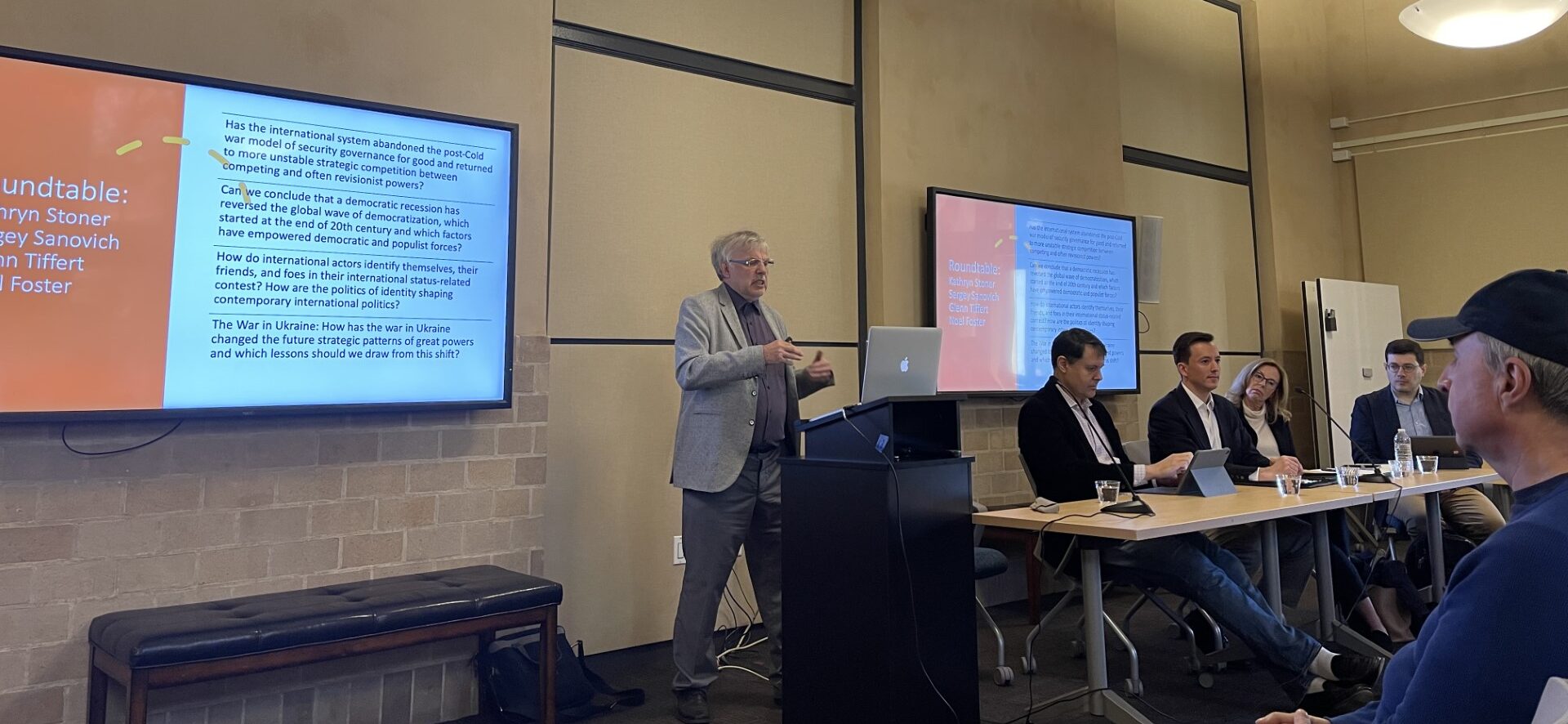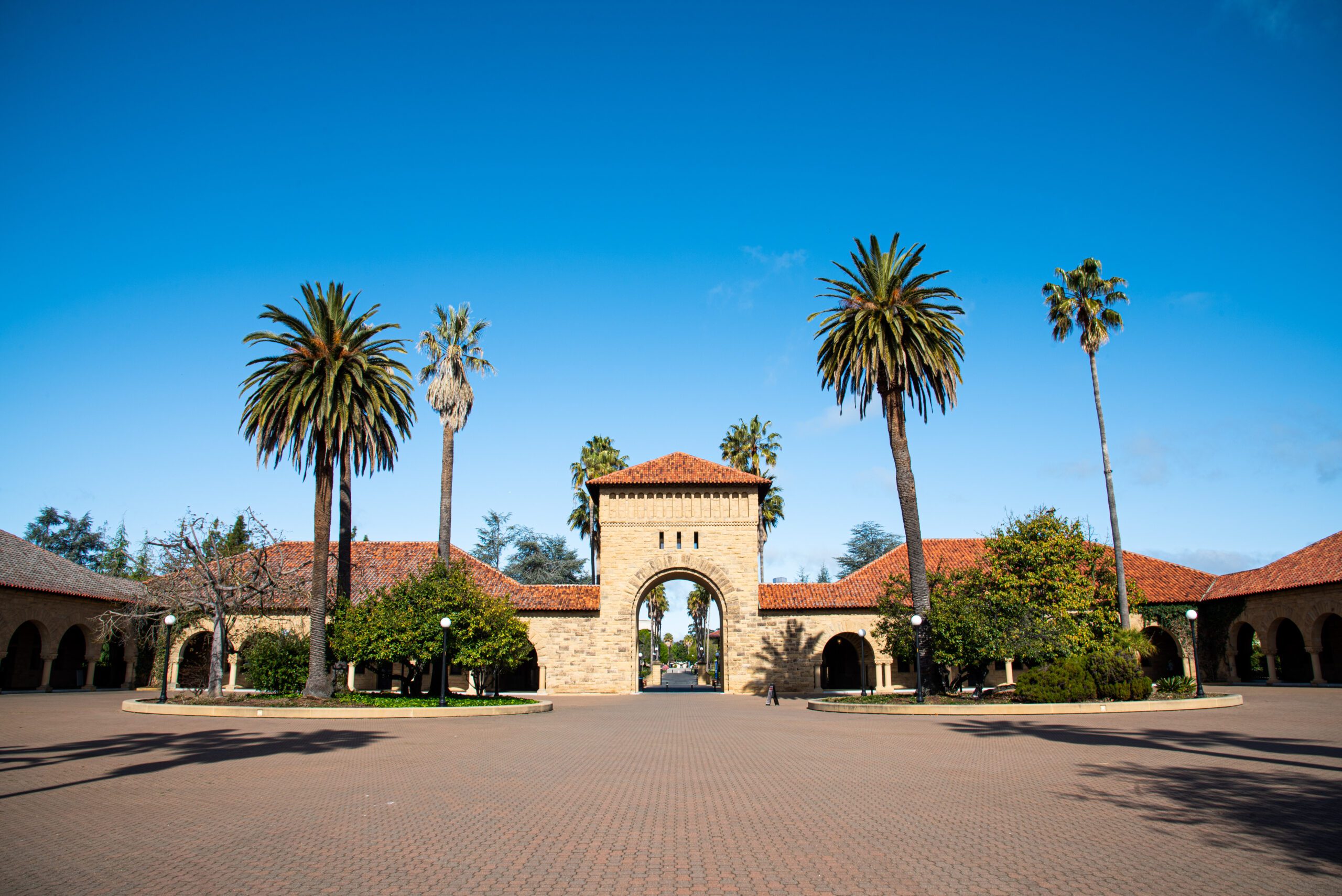My fellowship at Stanford University gave me an excellent opportunity to visit one of the top universities in the world and to use their excellent research facilities. The overall outcome of the visit was definitely positive as it advanced my research in many directions. My special thanks go to the Ministry of Foreign Affairs of Estonia, Vabamu and the Kistler Ritso Foundation, and Stanford Libraries for enabling this opportunity.

The main results of my fellowship are related to writing a grant proposal for the Estonian Research Council (PRG),
“Strategic Imagination in Countering Russian Information Warfare: The Effects of Strategic Narratives on Political Decision–Making” and preparing an edited volume, “Producing cultural change in political communities. How political populism and extremism have changed the international political and security environment in the 21st century?” that was published by the Springer Nature in late 2023. Dr. Larry Diamond (Freeman Spogli Institute for International Studies) wrote a preface to the volume – another result of my stay at Stanford, as it gave me the opportunity to meet one of the world leading researchers of democratization studies.
I organized a workshop at Stanford, “Global Knowledge Warfare after Russia’s Invasion of Ukraine: Strategic Narratives, Strategic Competition and Global Order,” which took place on April 14, 2023 and was hosted by the Center for Russian, East European, and Eurasian Studies and co-hosted by other Stanford institutions. There was remarkable interest in the event as around 90 people attended it either in person or online. The panelists included Dr. Kathryn Stoner (Center on Democracy, Development, and the Rule of Law), Dr. Sergey Sanovich (Hoover Institution), Dr. Glenn Tiffert (Hoover Institution) and Dr. Noel Foster (US Naval War College, Stanford Alumni).
I am very grateful to Dr. Herbert Lin and Dr. Sergey Sanovich for their personal support as they helped to find panelists and advised in the organization of the workshop. To some extent, the workshop followed the ideas of another panel a day earlier, “The Role of Public Diplomacy in Democracy Promotion,” with Dr. Michael McFaul, Dr. Larry Diamond, and Dr. Kathryn Stoner on the panel.
The third component of my proposal, writing a monograph on contemporary psychological warfare, is also progressing and we have had several discussions with my co-author Dr. Eric Shiraev.
During my stay at Stanford, I had opportunities to visit numerous events, either in person or online, even though the time limitations posed some challenges to the full use of all the opportunities Stanford can offer. I was also happy to visit the Estonian General Consulate in San Francisco, where we discussed the cooperation opportunities between Estonia and the Bay area. Besides Stanford, also the University of California at Berkeley is interested in expanding their Nordic studies program to include Estonia.
I would like to thank the co-hosts who made my visit a success. Stanford Libraries provided an office and access to numerous outlets and databases, which certainly made a necessary research environment for furthering my research, projects, and publications. The Curator for Estonian and Baltic Studies Liisi Esse is a very efficient and helpful host, who assisted me in adjusting to the new environment, finding necessary contacts, and making my stay at Stanford a pleasant experience. She has been active in holding the Estonian community in Stanford.
Hoover Institution Library & Archives was always helpful and ready to provide their assistance and I established a good contact with Dr. Eric Wakin, Deputy Director for the Hoover Institution Library & Archives. The scholars from the Hoover Institution significantly contributed to my workshop and my publication, “The Russian Federation in Global Knowledge Warfare: Influence Operations in Europe and Its Neighbourhood” has been added to the collections of both the Hoover Institution Library & Archives and Stanford Libraries
The Center for Russian, East European and Eurasian Studies (CREEES) was the main host for my workshop. I’m grateful to Dr. Jovana Lazić Knežević and Noura Khaled for their support in this event. I also had a conversation with Dr. Amir Wiener, who is responsible for the Baltic studies at CREEES.
Going forward, I would like to see the Stanford-Estonia cooperation continue and I be happy to personally contribute to making it happen. For example, Tallinn University of Technology’s Department of Law would be happy to host Stanford scholars and students in Legal Studies, International Relations and International Security Studies visiting Tallinn. The prospective areas may include new security challenges, technological advancements and IR, cyber security, AI security, space security, economic security related to the strategic priorities of my university, but also security theory, Baltic security issues, cooperative security (inc. EU & NATO), information security, hybrid threats and psychological warfare as these are all fields where we have great expertise.


 Back
Back